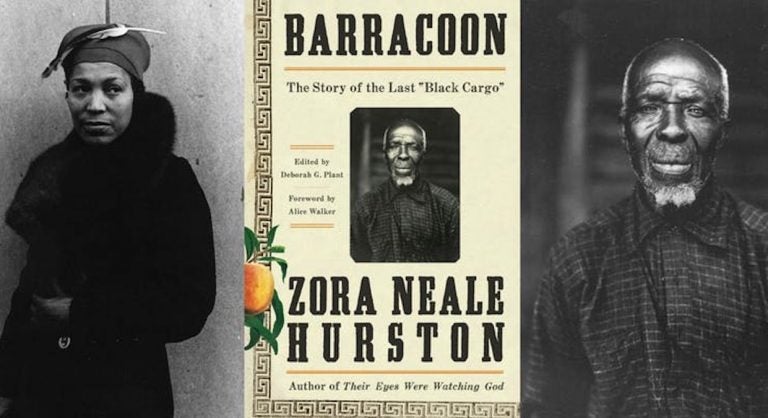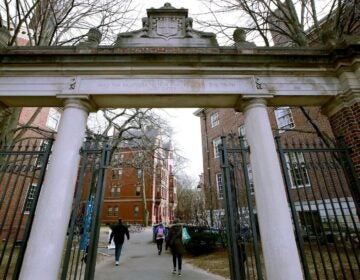Poignant, personal, painful: To editor, this book is not just history
“Barracoon: The Story of the Last ‘Black Cargo,’” immediately landed on the New York Times bestselling list.

Zora Neale Hurston's "Barracoon" recorded Cudjo Lewis' firsthand account of the raid that led to his capture and bondage 50 years after the Atlantic slave trade was outlawed in the United States.
This story originally appeared on the Philadelphia Tribune.
—
Zora Neale Hurston knew a good story, and when her journeys took her to Africatown, Ga., in 1927, she immediately recognized that she had found a lost page of history.
She bookmarked the moment and returned four years later to interview 86-year-old Cudjo Lewis — the last African alive and able to tell his story of enslavement in America.
For three months, Hurston recorded Cudjo’s firsthand account of the raid that led to his capture and bondage 50 years after the Atlantic slave trade was outlawed in the United States. She listened to the elderly man’s life story recalling the years he spent in slavery until the end of the Civil War and then prepared a book manuscript for publication.
As the manuscript made its rounds, it failed to get published as editors insisted on her changing her use of vernacular in presenting Cudjo’s story. She refused to alter the story, and the manuscript languished for several decades.
When the lost interviews of the last living American slave from Africa were released this year as “Barracoon: The Story of the Last ‘Black Cargo,’” it immediately landed on the New York Times bestselling list.
The book’s editor, Deborah G. Plant, has been a longtime scholar of Hurston, and is touched every time she thinks about Cudjo, or as Hurston revealed, his African name, Kossula.
“Every time I talk or think about it, I am struck,” said Plant. “Because it is a piece of our history that we theoretically know about and get in some history, sociology or world civilization book, but not this poignant, personal, first-witness account, this lived experience. We have narratives from those like Frederick Douglass or Harriet Jacobs or what have you, but accounts of African people who were born into the condition of servitude. With Kossula we have an account of someone who was forced into the condition of servitude and we get to see, feel and hear the brutality of that. And, with his pain, we get to touch it. He brings that to life and we can’t miss the horror of that and how devastating this was — and he’s one man. Now, multiply that by millions over centuries and then we see the accumulation of pain, grief and the catastrophic loss. This is not some so-called objective historical account, but a living, breathing human being. And when you read and hear his story, it’s like feeling the heartbeat of the person.”
Plant said that Hurston offered Cudjo’s story with the deftness of a skilled ethnographer and social scientist who would also go on to become one of the preeminent authors of the 20th century.
“This is her first full book-length work. We know her more as a writer and novelist in relation to her books, ‘Mules and Men’ and ‘Their Eyes Were Watching God,’ but her first works were anthropological,” explained Plant. “This book was unpublished, but it was still prepared for publication, so it’s her first book of work. She worked on that right alongside ‘Mule and Men,’ which was published later. These works really do point out that not only do we have in Hurston this genius of a novelist and short story writer, but also this brilliant social scientist. We get to understand more of the depth of Hurston as a cultural anthropologist. This work that she gives us just shows us the power, importance and significance of our cultural anthropology and what’s possible. With her work, she did exactly what she wanted to do and that’s to let the world know about the cultural wealth on the African continent. She spent her life doing that and it started with ‘Barracoon.’”
WHYY and the Literary Cafe present: The Great American Read with “Barracoon: The Story of the Last ‘Black Cargo’” written by Zora Neale Hurston, edited by Deborah G. Plant on July 31 from 6-8 p.m. at WHYY, 150 N. 6th St. For ticket information, call (215) 878-BOOK or visit whyy.org/events.
Check out more stories from the Philadelphia Tribune here.
WHYY is your source for fact-based, in-depth journalism and information. As a nonprofit organization, we rely on financial support from readers like you. Please give today.




